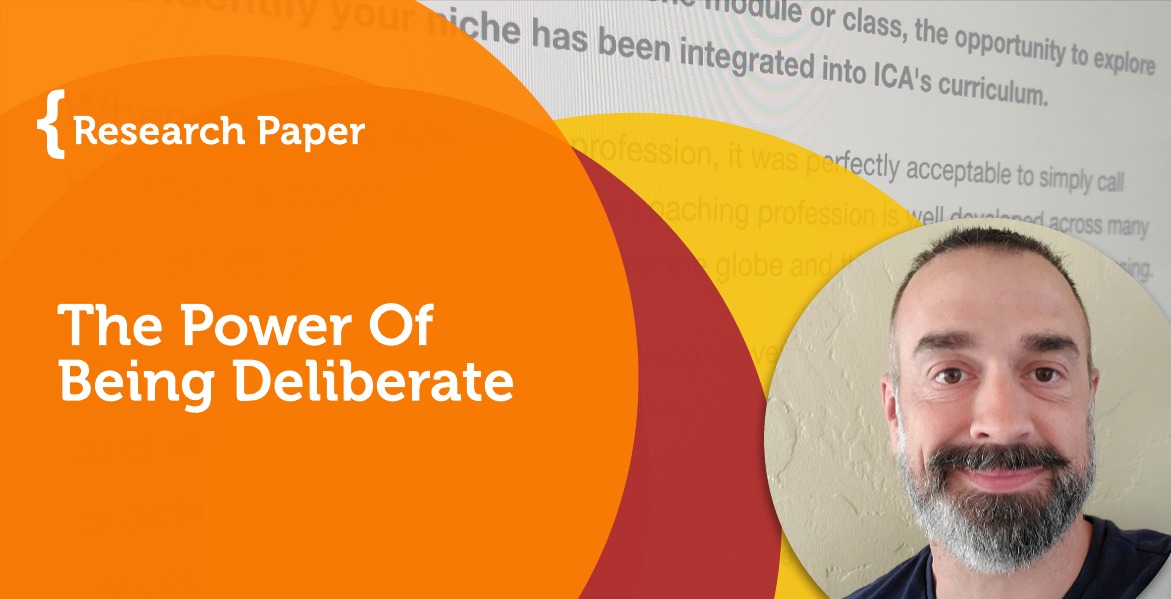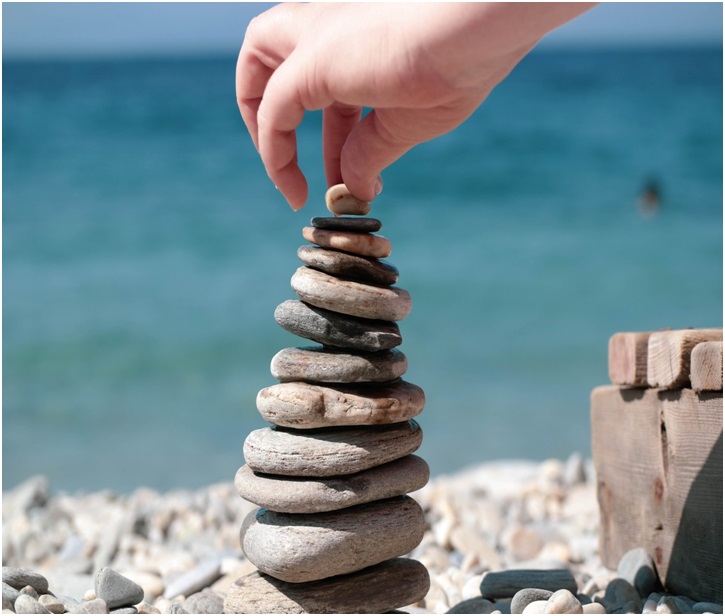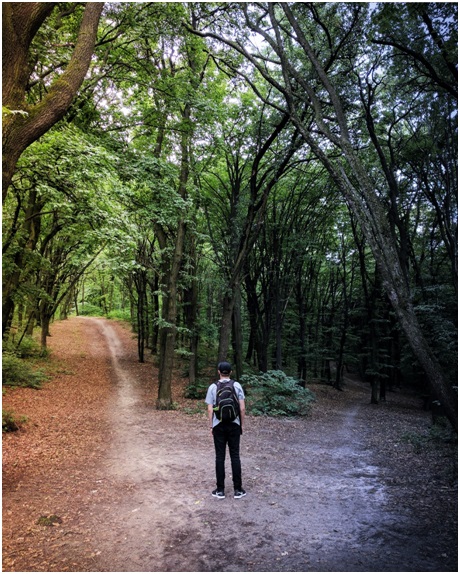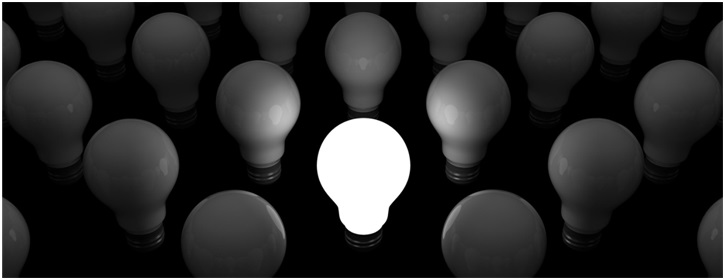 Research Paper By Evan Wilson
Research Paper By Evan Wilson
(Transformational Coach, UNITED STATES)

Photo by Leonardo Iheme on Unsplash

Photo by Vladislav Babienko on Unsplash
Deliberate Choices
Approximately 50 percent of our day is spent on autopilot (Rock, 2010). Some researchers even estimate that up to 95 percent of our activities are habitual. Every day is a series of choices. And every choice has an underlying intent, usually, something we have been conditioned to believe or value, such as making money, fitting in, being “appropriate,” or “responsible.”
When we engage in the practice of being deliberate, we consciously direct our energy to be more efficient, effective, productive, content, happy, and present. Being deliberate about our choices every day is the difference between feeling in control and feeling like victims of external circumstances.
However, to take control, we must acknowledge that not only do we have a choice in how our life is lived, but also that how we are living each day is a choice.
Reacting to Life
Many of us go through our day without consciously thinking about our actions or being fully present in what we are doing. When is the last time you deliberately focused on the process of tying your shoe or brushing your teeth?
Some of us believe that we are practicing conscious mindfulness by being prepared to react to whatever comes at us. Being deliberate shifts the brain to shaping what comes at us, rather than reacting to it. That isn’t to say that we have control over every circumstance or that things do not happen that we need to be prepared for and respond to. The Greek philosopher Heraclitus said that “Change is the only constant in life.” However, we spend more time waiting for change to happen so we can react, rather than plotting a course to guide the change to the outcome that suits us. Our choice may be to contemplate the various potential outcomes thinking that will prepare us. We may even begin making unconscious choices that mold how the change will play out.
Sarah
Sarah is unhappy in her job with a company going through budget cuts. She hopes to escape the next round of lay-offs and worries what might happen if she loses her job. She may start hoping that her next review is positive, or even that she might get a raise or a promotion. The fact that she is unhappy gets lost. She is waiting for things to happen, choosing to contemplate the potential outcomes. She might believe that this process will help her better prepare for whatever happens, but ultimately, she acknowledges that she is powerless to change the outcome. Sarah may even become so preoccupied with these thoughts that it starts to show in her work or attitude. When Sarah is laid off, she starts blaming the company, her manager, the economy, any other circumstances beyond her control, or even herself.
Sarah’s story is a pretty straightforward example of a “victim mentality,” in which otherwise strong people feel powerless over others or circumstances. One Lifehack author summarizes it as “People who have a victim mentality believe that life happens to them rather than for them”(Elizabeth, 2020). What else might Sarah have chosen?

Victim of Circumstance
It may be difficult to swallow, but many of us go through every day with the same victim mentality as Sarah – waiting for whatever will happen to us that we will then react or respond to. We may believe that we are taking control and practicing mindfulness by preparing for multiple outcomes or meditating on what we want the outcome to be. We may even think that we are consciously allowing the universe to provide what we need and actively paying attention to the cues. However, we are ultimately still choosing to wait for something or someone else to dictate our actions, thoughts, emotions, and happiness.
You don’t have to be the victim of your environment. You can also be the architect of it. – James Clear (Clear, Atomic Habits: An Easy & Proven Way to Build Good Habits & Break Bad Ones, 2018)
Not Me
You might argue that’s a bit dramatic. You might say, “I don’t see myself as a victim.” There are, in fact, circumstances that we cannot control. There are real and horrible situations in which people are victims of actions perpetrated against them, such as assault or rape. This paper is not meant to discredit, delegitimize, or lessen the life-altering effects of any of those horrifying situations. This discussion merely posits that we regularly make choices – both conscious and subconscious – that influence and determine what happens. And that those choices can be deliberately used to design and develop the life that we want.
Ignorant Bliss
Maybe we don’t want that responsibility. It can be daunting, acknowledging that everything we do is a choice. Many of us are afraid to take that control. Because it also means that we have to take responsibility and be accountable. What if I mess it up or do something wrong? What if everyone thinks I’m a screw-up?What if I make the wrong decision? When we think about the weight of accepting responsibility for our own lives, it may feel more painless to blame other people or circumstances for our inaction or unhappiness. When we assign that blame, however, we choose to relinquish control. And that means we choose to be a victim.
What about those of us who blame ourselves for everything? Taking responsibility for our thoughts and actions takes courage and power. It allows us to see options and make deliberate choices on how we want to forge ahead. When we blame ourselves for everything, we relinquish power and control. We eliminate the choices. We turn ourselves into the victim before someone else can. Blame removes our ability to take responsibility. Deliberateness and blame cannot exist in the same space. When we are deliberate in our thinking, we can take responsibility for our actions and feelings without blame. We can separate what we own versus what we do not.
The Alternative
The simple act of acknowledging that what we do at any point in time is a choice – whether conscious or not – gives us power. Accepting that fact gives us even more power. The process of making a choice may feel completely unknown – it may be so ingrained that it is second nature. However, there are always other choices. Furthermore, each of those choices comes with consequences. And those consequences set off a chain reaction that forms the future.
Be the designer of your world and not merely the consumer of it.- James Clear (Clear, Atomic Habits: An Easy & Proven Way to Build Good Habits & Break Bad Ones, 2018)
Most of us take the same route to work every day—the same roads, highways, trains, and busses. We have timed it flawlessly, so we know precisely when to leave the house to arrive on time. There are other routes, but at some point, we determined our optimal route and mostly stuck to it. The route becomes ingrained in us to the extent we listen to the radio or a podcast to alleviate the monotony. When I took the train every day, I usually had my nose in a book, and everything around me fell away. I didn’t notice other people if there was a delay, sights, sounds, anything. Until I magically heard the announcement of my stop.
If there is construction or an accident affecting traffic, we are forced to make more deliberate choices. What are the consequences or rewards of waiting out the traffic versus taking a different route? Do we take another train or bus, or get a Lyft or Uber? While our favorite apps can make the process easier with real-time information, it is merely input. We still need to make a choice. Let’s say we don’t give it any conscious thought and continue on our path – that is a choice. We might start complaining about the delay. Perhaps we blame our app for not recognizing the issue and steering us on a different path. Maybe we start to blame other drivers, looking for somewhere to direct our frustration over having our routine interrupted. We start to worry about being late to work and the consequences. Even though it isn’t our fault traffic came to a stand-still (which alone causes frustration because it is something out of our control). We may go so far as to get frustrated at our manager or others at the perceived consequences we expect to await us when we finally arrive. By the time we arrive at work, our attitude is negative, defensive, wary, frantic, and tense – and this shapes the rest of our day.
All of this is the result of a seemingly subconscious choice that we made. Other choices were available, each with its consequence or reward. But we blame the traffic, ostensibly removing any responsibility on our part.
Staying with the commute scenario, sometimes our app may take us on a different route. Or the bus or train breaks down. We are then forced to be deliberate and find an alternative. Focus shifts from the podcast, radio, or book. We must consciously pay attention so that we can consider options and make new choices. Our choices in this scenario are less likely to be subconscious and more deliberate. We are forced to be deliberate in what and how we choose and the consequences of each choice available. We have power and ownership over the choices we are making. And now, we also have additional input and perspectives to work with, giving us more power and control to direct our circumstances.
Those choices have always been there. We just never saw a reason to contemplate them until we were forced by something outside our control. But what if we could control how a scenario plays out? Does conscious choice guarantee success? No. But it informs our choices moving forward and forces us to be more deliberate in our actions.

Paying Attention
Permission
What if we gave ourselves permission – every single day – to take responsibility and live deliberately? What if, rather than waking up and waiting to see what the universe has in store for us that day, we wake up and start making choices that will create the life we want?
“The universe will provide what we need on our journey.” I believe this statement. But there are a couple of misconceptions around it. It does not mean we should wait around for clear communication or “sign” telling us what to do. Or that we should be on the lookout for a package from the universe with our lottery winnings. We must consciously pay attention to ourselves and the world around us and be ready to act. If we are not paying attention, we get in our own way, aimlessly grasping at whatever is around us. We create circumstances that happen to us by choosing to be inattentive. And that starts the domino effect of blame and being a victim. Being a victim keeps us stuck in the past.
On the other hand, when we are mindful and deliberate, we learn to recognize cues, feelings, and messages. We act with confidence and trust in ourselves and the universe. We create opportunities that move us forward.
Conclusion
There are always things in life that we cannot control. And our choices do not always create the result that we expect – or want. But practicing being deliberate every day about our intentions, actions, purpose, goals, values, and process helps us manage uncertainty and gives us the confidence needed to navigate change adeptly. It empowers us to have more control over what happens to us as well as because of us.
Practicing deliberate action every day encourages the feeling of contentment that we are accomplishing the things we set out to do. Confidence that we are walking down the path that aligns with our intention and purpose. In-depth focus on what matters. A more efficient life because we take action sooner and are not bogged down with all of the superfluous distractions, more meaning through deliberately moving toward our purpose.
Deliberate choices cause transformative growth.
References
Clear, J. (2018). Atomic Habits: An Easy & Proven Way to Build Good Habits & Break Bad Ones. Penguin Publishing Group. Retrieved from jamesclear.com
Clear, J. (n.d.). The Beginner’s Guide to Deliberate Practice. Retrieved from James Clear
Elizabeth, A. (2020, 02 03). 4 Signs You Have a Victim Mentality (And How to Break Out of It). Retrieved from Lifehack
Rock, D. (2010, 11 14). New Study Shows Humans are on Autopilot Nearly Half the Time. Retrieved from Psychology Today